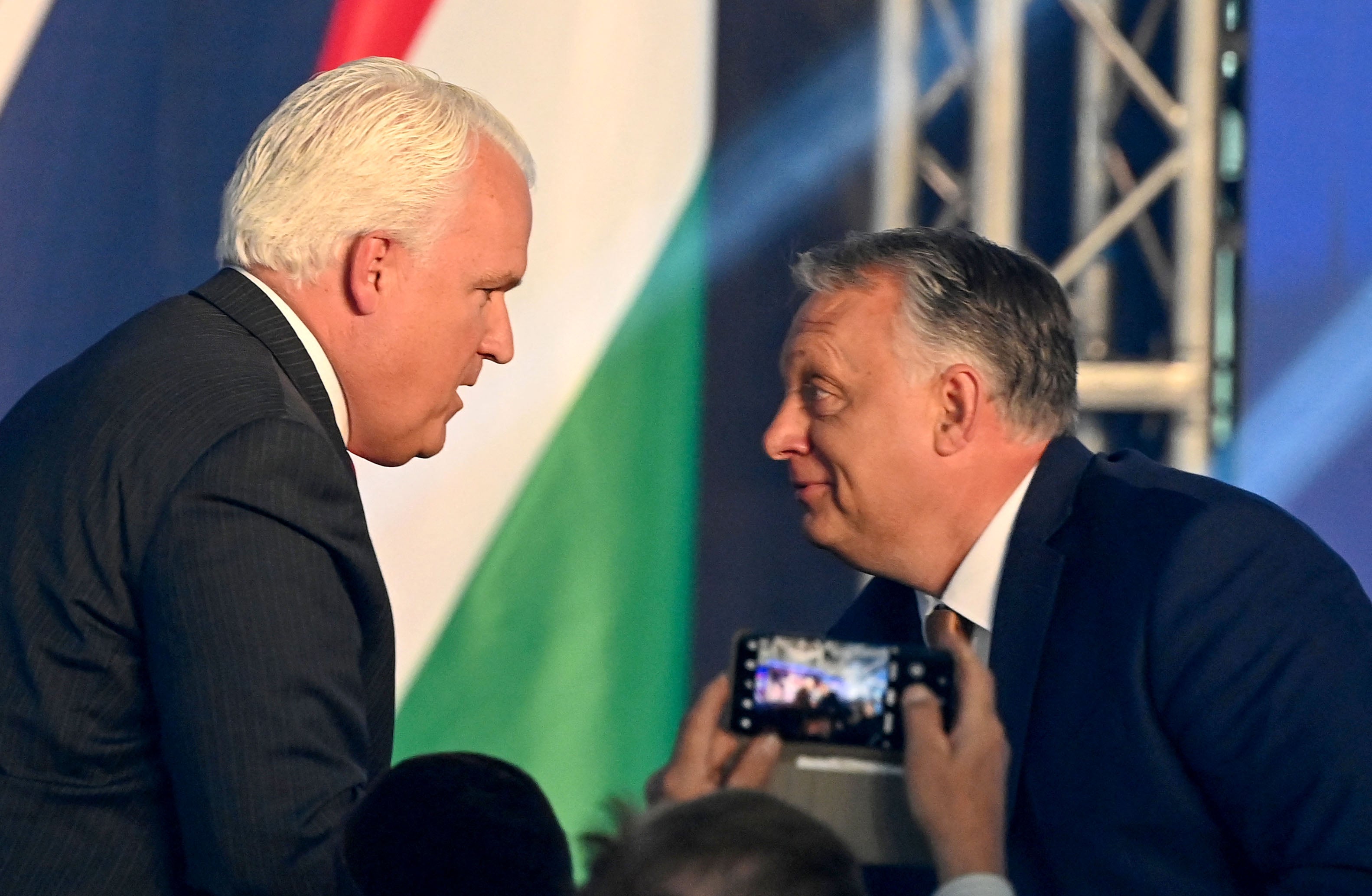‘Showing his real face’: Outrage at Viktor Orban’s ‘race-mixing’ comments
‘We do not want to become a mixed race,’ says the Hungarian leader, in comments which have alarmed EU critics, reports Liam James
![Orban has been outspoken against non-European influences [file photo]](https://static.the-independent.com/2022/07/25/11/GettyImages-1230043900.jpg)
Hungarian prime minister Viktor Orban has long posed as a defender of “western civilisation” against outside influences he deems invasive.
The populist has dismissed multiculturalism as an illusion and argued that Christian and Muslims “will never unite” in a single society – a view he has used as grounds for rejecting refugees and strengthening border control.
Now 12 years into his reign and recently emboldened by the biggest election victory in post-Soviet Hungarian history, the Fidesz party leader has again spoken out against diversity, this time shocking even longtime observers with his comments.
In a speech at Romanian university Baile Tusnad on Saturday, he said: “We [Hungarians] are not a mixed race… and we do not want to become a mixed race,” adding that western European countries could no longer be considered nations due to intermingling among Europeans and non-Europeans.
Opposition politicians recoiled at the prime minister’s segregationist tone. Katlin Cseh of the centrist Momentum Movement party tweeted: “To all ‘mixed race’ people in Hungary, whatever this senseless racist outburst means: your skin colour may be different, you may come from Europe or beyond – you are one of us, we are proud of you.
“Diversity strengthens the nation, it does not weaken it.”
She added: “His statements recall a time I think we would all like to forget.”

Guy Verhofstadt, MEP for Renew Europe and a persistent critic of Mr Orban, said the Hungarian leader was “showing his real face because he knows from experience Europe is too weak to confront him”.
Though Hungary remains in the European Union, the republic’s shift to “illiberal democracy” under Mr Orban has grated against the bloc’s stated fundamental principles of freedom, democracy and equality.
Mr Orban’s Fidesz party has grabbed control of around 80 per cent of independent media in Hungary and was this year warned by the EU to respect the rule of law after trying to force through constitutional changes despite judicial opposition.
Former vice president of the European Commission, Viviane Reading, said she feared Mr Orban’s government planned to use the two-thirds majority it won in the April national elections to claim public support for overruling Hungary’s independent courts.
Though the bloc has moved towards a potential funding cut for Hungary, commissioners are yet to bring anything like the fines imposed on Poland for its breaches of judicial independence.
Besides the views of his opponents, Mr Orban’s comments raise questions for American conservatives charmed by the Hungarian leader’s zeal for Christian dominance, which he punctuates with warnings that all other routes spell western decline.
His Romanian speech came a little less than a fortnight before his scheduled appearance at the Conservative Political Action Conference (CPAC) taking place in Texas on 4-7 August, set to be the biggest event in the American right-wing calendar.

The prime minister will share a bill with former US president Donald Trump, right-wing talk show host and former politician Nigel Farage and many of America's other right-wing darlings including Republican senator Ted Cruz and strategist Steve Bannon, who last week was found guilty of contempt for ignoring a subpoena from the US Congress examining events of 6 January 2021.
Explaining Mr Orban’s invitation to the conference, Matt Schlapp, head of CPAC, said: “What we like about him is that he’s actually standing up for the freedom of his people against the tyranny of the EU.
“He’s captured the attention of a lot of people, including a lot of people in America who are worried about the decline of the family.”
In May, CPAC held its first conference in Europe, choosing Hungary as its host and Mr Orban as a headline speaker.
The prime minister used his speech to promote Hungary as “the bastion of conservative Christian values in Europe” and urged US conservatives to defeat “the dominance of progressive liberals in public life” as he said he had done at home.
The alignment of views appears to have a deep bond between the two conservative movements but experts speculate that it is only superficial and the true appeal of Mr Orban to America’s right-wing lies in his peaceful consolidation of authoritarian power.
“The Trumpist side of the Republican Party is coming for the rhetoric, but staying for the autocracy,” said Kim L Schepple, a sociologist at Princeton University who has studied Mr Orban.
“I’m worried the attraction to Orban is only superficially the culture war stuff and more deeply about how to prevent power from ever rotating out of their hands.”






Join our commenting forum
Join thought-provoking conversations, follow other Independent readers and see their replies
Comments